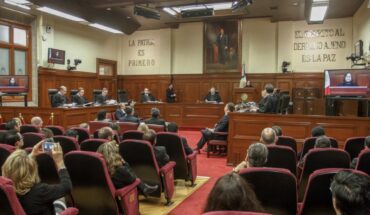The First Chamber of the Supreme Court of Justice of the Nation (SCJN) determined that the collection of excessive or disproportionate interest agreed on a promissory note is prohibited, regardless of whether it is ordinary or arrears, since in both cases the Usury.
The high court explained that according to the American Convention on Human Rights usury is understood as an exploitation of man by man and is presented when one person obtains for his own benefit and abusively, on the property of another, an interest in another excessive derivative of a loan.
Read: How to Get Out of Debt: A Detailed Manual to Heal Your Portfolio
While ordinary interest constitutes the income that produces or must produce the borrowed money, i.e. the price paid for the use of the money; whereas default interests consist of the penalty to be imposed for the late delivery of the money as agreed in the contract.
In that regard, the First Chamber determined that usury may be set up by overcharging or disproportionate in both ordinary and default interest.
You may be interested: What debts you have to pay before it’s too late and why
This, he added, because although default interest, in a strict sense, is not an immediate consequence of the loan, but rather a penalty imposed against non-payment, it should not be overlooked that the default is directly linked to the obligation to repay or meet the loan on the agreed date.
What we do in Animal Político requires professional journalists, teamwork, dialogue with readers and something very important: independence. You can help us keep going. Be part of the team.
Subscribe to Animal Politician, receive benefits and support free journalism.#YoSoyAnimal
translated from Spanish: Court prohibits overcharging interest for loans
July 23, 2019 |





